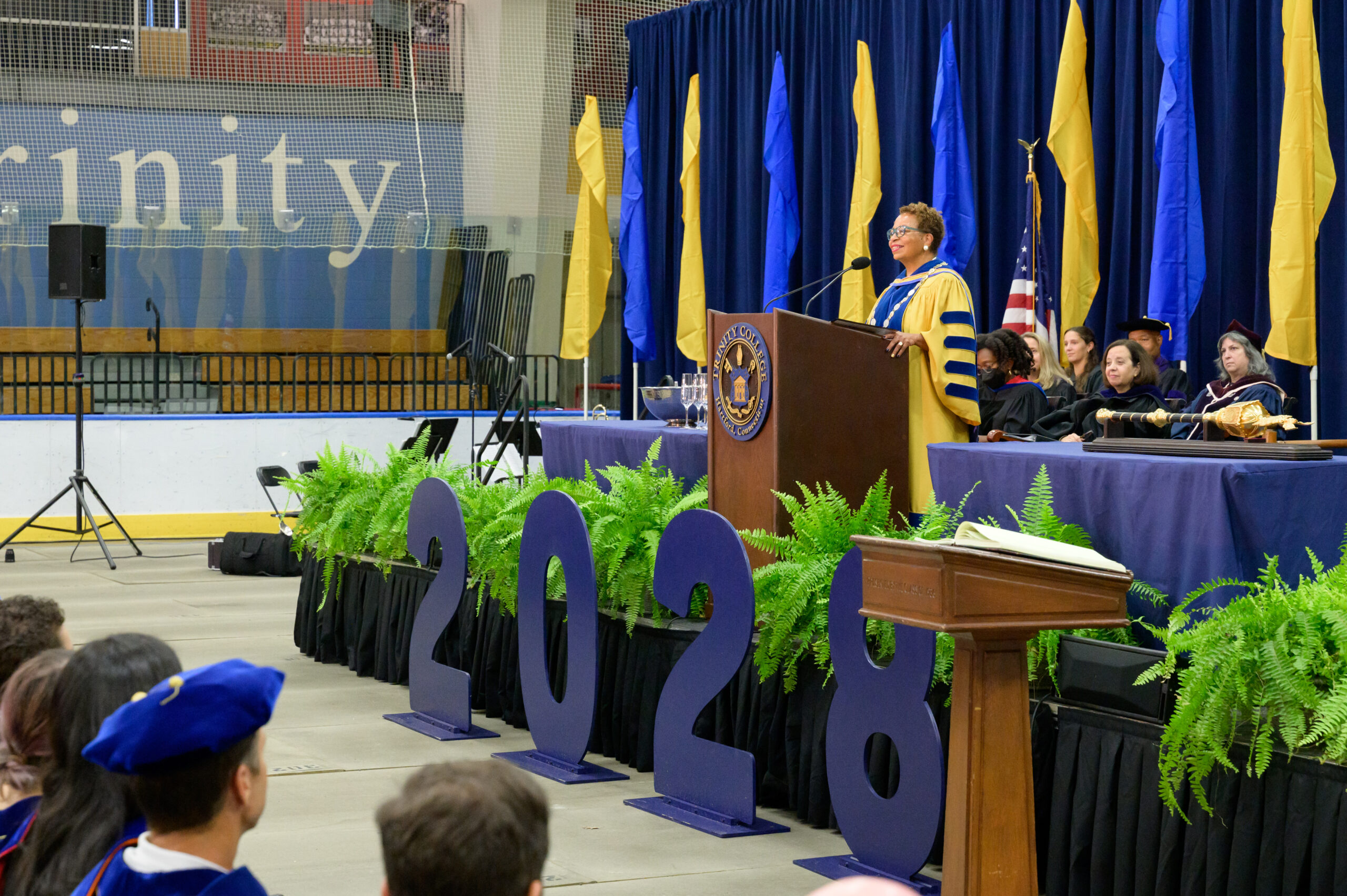Iqra Athar ’26
News Editor
On Wednesday, Aug. 28, Trinity College marked the beginning of its 201st academic year with the President’s Convocation and Matriculation Ceremony at the Koeppel Community Sports Center. The event welcomed 547 first-year students, 17 transfer students and two new members of Trinity’s Individualized Degree Program. The ceremony began with flag-bearers and faculty marshals leading the new students and faculty into the venue. Rev. Marcus George Halley offered reflections on the journey ahead.
Ava Caudle ’25, President of the Student Government Association (SGA), addressed the incoming students, stressing the importance of intellectual honesty and academic integrity. “By choosing to matriculate to Trinity, each of us commits to intellectual honesty and academic integrity,” she stated. She also highlighted the resilience and perseverance represented by Trinity’s mascot, the bantam. Caudle’s speech centered on the sense of community and growth that awaits the new students.
Dean of Admissions and Financial Aid, Matthew S. Hyde, spoke next, congratulating the students on their achievements and urging them to embrace their diverse identities. “Trinity 2028, your reach is truly global,” he remarked, acknowledging the wide-ranging cultural, racial and ethnic backgrounds of the students, from Hartford to as far as Malaysia.
President Joanne Berger-Sweeney, presiding over her final year at Trinity, talked about the significance of the ceremony and traditions such as the matriculation book. “Matriculation symbolizes the commitment to preserve, transmit, and advance knowledge,” she stated as students signed the matriculation book during the ceremony.
Channon S. Miller, an assistant professor of American Studies and History and an alumna of the class of 2011, shared her personal journey of overcoming self-doubt at Trinity and encouraged the incoming students to find their purpose and voice at Trinity, reinforcing the themes of self-discovery and resilience.
The ceremony concluded with the traditional lemonade toast led by Berger-Sweeney, and Sonia Cardenas, dean of the faculty, officially declared the academic year underway.
The Class of 2028 is noted to represent 35 U.S. states and 39 countries including Armenia and Sri Lanka. Nearly half of the new students are from New England, and 31% identify as a race other than white. The class also includes 10 Posse Scholars, seven Presidential Scholars and 31 Arches Scholars. About 17% of the class are first-generation college students, with nearly three-quarters applying for financial aid.
In a written statement to the Tripod, Ava Caudle further emphasized the SGA’s commitment for the year: “As this year’s SGA President, my primary focus is on fostering collaboration and community. By centering these values, we aim to enhance Trinity’s sense of connection as we organize inclusive activities both on and off-campus, increase openness to individual student ideas and concerns, and strengthen partnerships between SGA, student organizations, justice initiatives, and institutional support.”
Dean Matthew Hyde, in an email to the Tripod, provided further insights into the Class of 2028’s enrollment dynamics. “We received 7,592 first-year applications, marking a 17% increase from last year, with an acceptance rate of 29%,” he noted, emphasizing the competitive nature of this year’s admissions process. Hyde further highlighted the diversity of the incoming class following the Supreme Court’s 2023 decision in SFFA v. Harvard/UNC, which ended race-conscious admissions policies. “Despite the SCOTUS decision to end affirmative action, we enrolled a more racially diverse first-year class than in previous years,” he stated. This achievement, he explained, was partly due to a revised essay prompt that encouraged applicants to share significant life experiences, fostering a richer understanding of their backgrounds and potential contributions to the Trinity community.







+ There are no comments
Add yours